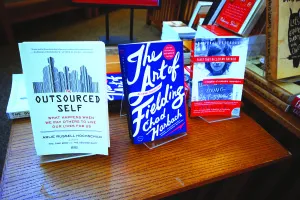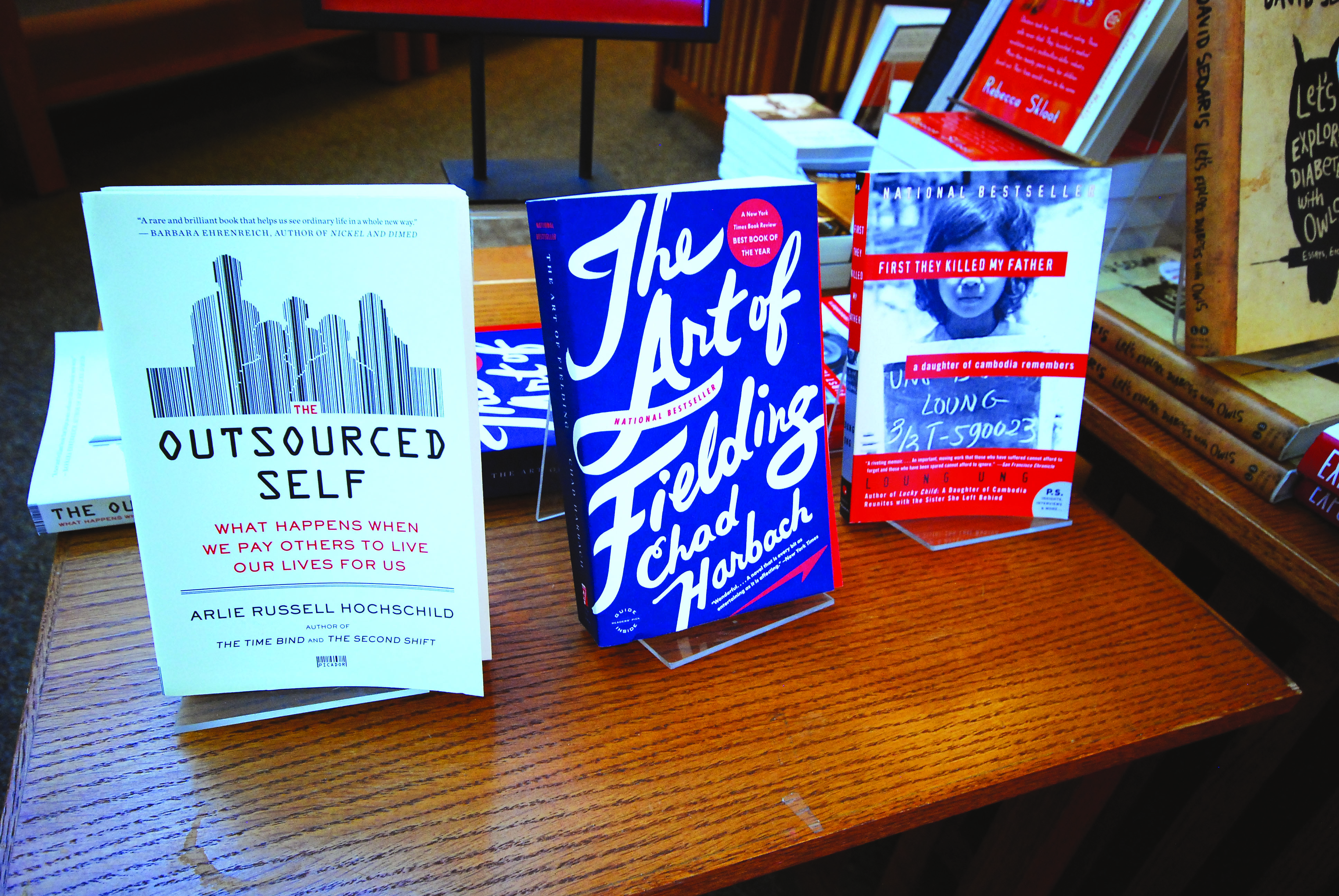All the labors and fruits of American industry are built upon one central maxim: People produce more if they specialize. This belief created great factories and assembly lines, transformed society and generated mass movements, destroyed established powers and raised new ones. Hand in hand with capitalism, industrialization advanced civilization’s standard of living to levels previous generations could never have imagined.

So why is it that so many Americans are unhappy? The neuroses of American society have generally reflected a certain insecurity about itself — a recurrent and perhaps even constant fear that America is in decline, that it cannot provide for its citizens and that perhaps its way of life isn’t relevant to its true needs and desires. The Occupy Movement is but one instance of American angst, although to call it angst does not do justice to what are admittedly very deep-seated views.
It seems only fitting that Berkeley, the standard bearer for American liberalism, has produced this latest criticism of Americana. Renowned sociologist Arlie Hochschild, a professor at UC-Berkeley, explains in “The Outsourced Self” how a pervasive industrial mentality has eroded the organic social links of American society, replacing them with dating coaches, wedding planners and nursing homes as far as the eye can see. Just like we need farmers to grow our food for us, so we need hired helpers and consultants to guide us through every moment of our lives.
In short, Hochschild sees the rise of the service industry as hardly perfect. People pay other people — outsourcing — to do things they don’t want to do themselves, but in Hochschild’s view, they don’t turn their leisure time into something worthwhile. Ironically, with time to spare, Hochschild’s Americans find their lives drained and flat.
The prime cause of this ambivalence is that, for all its productive powers, specialization breeds homogeneity. Both Match.com profiles and societal norms are trending towards similar, idealized and overly trained representations of reality — we want to be perfect, and by learning how to act perfect, we demean perfection itself. The industry itself remains self-aware, maintaining that perfection is not general but in the eye of the beholder; on the other hand, it claims to sell a universal perfection to the people it serves.
In all of Hochschild’s case studies, she sees a drive to commercialize services that nobody really needs; I see a drive to specialize. She sees this desire as evidence of insecurity — the belief that we aren’t capable of doing things properly. I consider the trend inevitable, not a symptom of insecurity but of man’s desire to take something they already do well and make it even better. Of course, regardless of what outsourcing actually is, the specialization of the service industry is not necessarily better.
Hochschild starts out well and draws subtle distinctions and nuances in the industry-client relationship in her examination of the institution that is American courtship. The later chapters leave solid ground and embrace anecdotal evidence in praise of an ideal that is surprisingly reactionary: In Hochschild’s frequent paeans to her family farm we see a dream of a bygone nation that in many ways never even existed — self-reliant, happy and willing to tolerate a lower standard of living. (In an era of unprecedented consumerism, perhaps the author has a point.) It should not be surprising that in a sharp change from the beginning, the reference notes for these later chapters are tangential at best and nonexistent at worst.
Trying to tie a hundred thoughts together, the book’s conclusion raises questions about capitalism and free markets but does not suggest any solutions. America is portrayed as consumerism victorious: laissez-faire capitalism rampant, heedlessly destroying communities and families.
Hochschild snipes at deregulation and privatization, but she does not even explain how they relate to her overarching point– with 10 or so pages remaining, it’s not like she has the time. Throughout the book, we’re not sure what Hochschild would rather have; as American capitalists, we chose this world and this mode of society for a reason. More specific to the book, many couples are unable to have children — should we bar them from seeking surrogates? Before that, perhaps the government should nationalize wedding planners or purchase eHarmony?
The greatest disappointment of the book, however, is that Hochschild does not adequately find the source of the problem: Why do we outsource? Some demand is artificially driven; Listerine famously stigmatized bad breath in order to sell itself. But it seems as though the outsourcing Hochschild questions is not a product of Mad Men-esque advertising giants. Rather, in many cases, we only have ourselves to blame. The U.S. Bureau of Labor Statistics found that the average American works only 34 hours a week, as opposed to 38 hours in 1964. Even with extra time available to America’s workers, parents are being sent to nursing homes and children are being sent to childcare.
Even so, the failure of today’s society is not that we have less time to raise families and support societies; it’s that we simply don’t want to do so. Hochschild treats many of outsourcing’s excesses as unnecessary because they are. If Hochschild then wants to criticize capitalism, she must acknowledge that the beauty of the free market — and of democracy — is that if you are unsatisfied with what you buy, you get what you deserve.
The free market existed back when Hochschild’s family ran a farm many decades ago, an idyllic time in her memory. The only difference is that now we can afford to pay for the things we have always wanted. Civilization is crying for help, to be sure, but after reading this book it’s still hard to see why.
